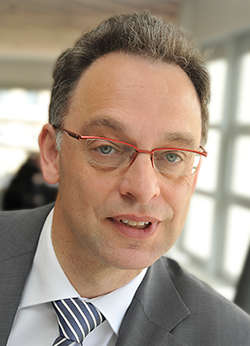4th International Workshop on Energy-aware Simulation (ENERGY-SIM’18)
Co-located with the ACM/SPEC ICPE 2018, the 9th ACM/SPEC International Conference on Performance Engineering
Scope
The energy impact of IT infrastructures is a significant resource issue for many organisations. The Natural Resources Defence Council estimates that US data centers alone consumed 91 billion kilowatt-hours of electrical energy in 2013 – enough to power the households of New York twice-over – and this is estimated to grow to 139 billion kilowatt-hours by 2020. However, this is an underestimation as this figure fails to take into account other countries and all other computer usage. There are calls for reducing computer energy consumption to bring it in line with the amount of work being performed – so-called energy proportional computing. In order to achieve this we need to understand both where the energy is being consumed within a system and how modifications to such systems will affect the functionality (such as QoS) and the energy consumption. Monitoring and changing a live system is often not a practical solution. There are cost implications in doing so, and it normally requires significant time in order to fully ascertain the long-term trends. There is also the risk that any changes could lead to detrimental impacts, either in terms of the functionality of the system or in the energy consumed. This can lead to a situation where it is considered too risky to perform anything other than the most minor tweaks to a system. The use of modelling and simulation provides an alternative approach to evaluating where energy is being consumed, and assessing the impact of changes to the system. It also offers the potential for much faster turn-around and feedback, along with the ability to evaluate the impact of many different options simultaneously.
ENERGY-SIM 2018 seeks original work that is focused on addressing new research and development challenges, developing new techniques, and providing case studies, related to energy-aware simulation and modelling.
Specific topics of interest to ENERGY-SIM 2018 include, but are not limited to, the following:
- Simulation/Modelling for energy reduction
- Estimation of energy consumption
- Evaluation of techniques to reduce consumption
- Simulation/Modelling for smart-grids
- Simulation/Modelling of micro- and macro-level energy generation and supply
- Simulation/Modelling of smart-grid deployments
- Simulation/Modelling of energy in computer systems
- Data centre simulation/modelling
- Individual component simulation/modelling
- Multi-scale system simulation/modelling
- Simulation/Modelling for energy in the Internet of Things
- Simulation/Modelling of Internet of Things systems including battery operated systems
- Simulation/Modelling of energy scavenging approaches
- Performance and validation of energy-aware simulations and modelling
- Benchmarking and analytical results
- Empirical studies
- Theoretical foundations of energy-aware simulation/modelling
- Theoretical models for energy-aware simulation/modelling
- Energy-aware simulation/modelling packages and tools
- Energy-aware simulation/modelling packages under development from the community
Keynote Announced

Boudewijn Haverkort, University of Twente
Speaker Bio
Boudewijn Haverkort is full professor for Design and Analysis of Communication Systems at the University of Twente, in the faculty for Electrical Engineering, Mathematics and Computer Science (EEMCS). His work focuses on quantitative methods and techniques to support the design of computer and communication systems, these days often addressed as cyber-physical systems. In all of his work, a quantitative assessment of system properties is a key-driver; in the past, he focused mostly on performance issues, but these days more and more on dependability and energy-efficiency. Boudewijn has published close to 200 papers in international conferences and journals, and has lectured at various universities. Of the last 10 years, he has been heavily involved in public-private partnerships; he was scientific director of the Embedded Systems Institute in Eindhoven (2009-2013) and since 2016 is chairman of the Dutch research and innovation program Commit2Data, on big data and its applications. Since May 2017, Boudewijn is also chairman of the department of computer science at the University of Twente, and, as such, member of the management team of the faculty EEMCS.
Technical Programme
|
Time |
Item |
|
13:30-13:40 |
Opening and Welcome Remarks |
|
13:40-14:30 |
Keynote Session: |
|
14:30-15:00 |
Paper Session 1 |
|
15:00-15:30 |
Coffee Break |
|
15:30-17:00 |
Paper Session 2 |
Submission Guidance
Papers will be accepted in one of two formats:
-
Short work in progress/position papers, up to 4 pages in length
-
Full papers, up to 6 pages in length
Papers describing significant research contributions of theoretical and/or practical nature are being solicited for submission. Authors are invited to submit original, high-quality papers presenting new research related to energy-aware simulations.
The papers that are accepted and presented at the workshop will be published by ACM and disseminated through the ACM Digital Library. It is intended that the best papers will be put forward for a Journal special edition post workshop.
Submission will be made via EasyChair: https://easychair.org/conferences/?conf=energysim18
Organising Committee
General Co-Chair - Stephen McGough, Newcastle University, UK
General Co-Chair - Matthew Forshaw, Newcastle University, UK
Publicity Chair - Mehrgan Mostowfi, University of Northern Colorado, USA
Programme Committee
Lorenzo De Carli, University of Wisconsin-Madison, USA
Erol Gelenbe, Imperial College London, UK
Ibad Kureshi, Inleco Systems
Mehrgan Mostowfi, University of Northern Colorado, USA
Omer Rana, Cardiff University, UK
Khalil Shafie, University of Northern Colorado, USA
Nigel Thomas, Newcastle University, UK
Important Dates
- Abstract deadline: 8th January 2018
- Paper deadline:
15th January 201824th January 2018 (Final Extension) - Author notification: 4th February 2018
- Camera ready deadline: 18th February 2018